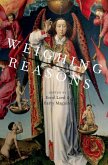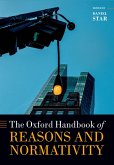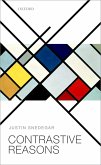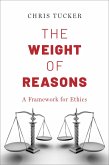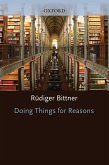The Range of Reasons contributes to two debates and it does so by bringing them together. The first is a debate in metaethics concerning normative reasons, the considerations that serve to justify a person's actions and attitudes. The second is a debate in epistemology concerning the norms for belief, the standards that govern a person's beliefs and by reference to which they are assessed. The book starts by developing and defending a new theory of reasons for action, that is, of practical reasons. The theory belongs to a family that analyses reasons by appeal to the normative notion of rightness (fittingness, correctness); it is distinctive in making central appeal to modal notions, specifically, that of a nearby possible world. The result is a comprehensive framework that captures what is common to and distinctive of reasons of various kinds: justifying and demanding; for and against; possessed and unpossessed; objective and subjective. The framework is then generalized to reasons for belief, that is, to epistemic reasons, and combined with a substantive, first-order commitment, namely that truth is the sole right-maker for belief. The upshot is an account of the various norms governing belief, including knowledge and rationality, and the relations among them. According to it, the standards to which belief is subject are various, but they are unified by an underlying principle.
Dieser Download kann aus rechtlichen Gründen nur mit Rechnungsadresse in A, B, BG, CY, CZ, D, DK, EW, E, FIN, F, GR, HR, H, IRL, I, LT, L, LR, M, NL, PL, P, R, S, SLO, SK ausgeliefert werden.




